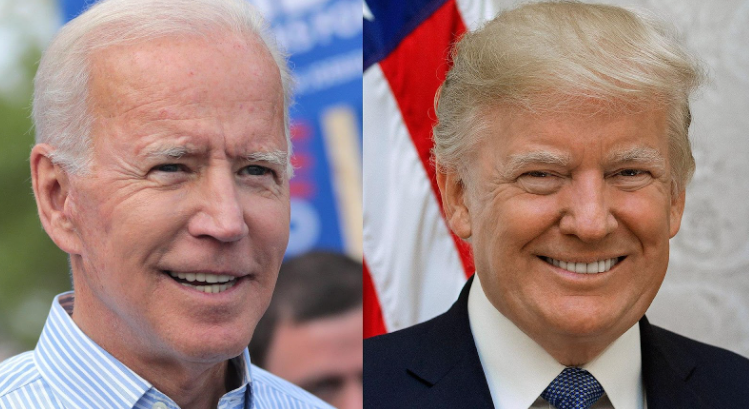
The first of the two US presidential debates are scheduled to be held on the 27th of June this year. This, however, is not the first time presidential candidates are facing off each other. Their first debate, held in September 2020, was so chaotic and full of shouts and mudslinging that the Commission on Presidential Debates had to add a mute button for the telecast of the second round in October that year. The 27th June debate is not expected to be too different. More importantly, it highlights the importance of the Lincoln-Douglas debates from 170 years ago. Somewhere between top hats, cowboys and “a house divided”, the United States of America was asking itself one question: “Are All Men Equal?” This question grew more and more important as the US expanded westward. With the Illinois senate elections coming up, two competitors, Abraham Lincoln and Stephen Douglas debated upon the answer 7 times in 7 different districts. The stakes: the winner got to shape the founding principles of the mighty superpower we see today. When Lincoln and Douglas debated on slavery and its extension, these debates were not just about the senate seat but also the future of the country both men were trying to build. The debate gave us quotes like “A house divided against itself cannot stand” and “this government cannot endure permanently half slave and half free.” But what is more interesting here is the format of these debates. Each debate had an opening statement by the candidates for an hour each, a rebuttal for an hour and a half, followed by a thirty minute closing statement by the debaters. If that sounds familiar, you are right; this still remains the most used debate format in modern formal debate called the Lincoln-Douglas format. Lincoln and Douglas engaged in direct, one-on-one interaction, addressing each other's arguments head-on. This back-and-forth exchange allows for a more dynamic and nuanced exploration of the issue at hand. More importantly, it leads to a more informed citizenry. This format ensured fairness and fostered critical thinking. Each candidate had the opportunity to not only present their arguments but also systematically engage with and dismantle their opponent's points. This back-and-forth exchange allowed the public a deeper understanding of the issues at stake, fostering a more informed citizenry. Just as Lincoln and Douglas dueled with well-reasoned arguments, LD debate emphasizes clear logic, critical thinking, and addressing the opponent's arguments directly. One of the many contributions of these debates was the emphasis placed on reasoned arguments. Unlike the mudslinging contests that often dominate headlines today, Lincoln and Douglas fought a battle of ideas. Their exchanges weren't about personal attacks or emotional manipulation, but rather a deep dive into the moral and political implications of slavery. Lincoln, a staunch opponent of the institution of slavery, carefully constructed his arguments, emphasising on the fundamental contradiction between slavery and the ideals of liberty enshrined in the Declaration of Independence. Douglas, on the other hand, championed "popular sovereignty," allowing residents of new territories to decide on the issue of slavery. While their positions were diametrically opposed, both men presented well-reasoned arguments, dissecting the complex questions surrounding the issue. Although Douglas won the election and ultimately got to keep his seat, his reputation as a national leader diminished and Lincoln earned widespread acclaim as a talented spokesperson. Newspapers across the country published transcripts of the debates, bringing the national spotlight onto slavery and forcing citizens to engage with the issue in a thoughtful way. Lincoln, with his powerful use of language and unwavering moral compass, challenged audiences to confront the ethical implications of slavery. Douglas, though ultimately on the losing side of history, forced the issue into the national consciousness and demonstrated the power of addressing complex issues with logic and evidence. But the debates were not just a lesson in history: the principles established in those fiery exchanges between Abraham Lincoln and Stephen Douglas resonate even today, in the age of tweets and cable news shouting matches. As such, many have called for return of the LD debate structure in modern presidential debates. In an age of divisive political rhetoric, the Lincoln-Douglas debates serve as a powerful reminder of the importance of civil discourse, critical thinking, and a focus on the issues themselves. In today's political landscape, specifically, such debates are of immense importance, as it gives political leaders a platform to stand their ground and defend their ideology in real time, as opposed to making a personal attack on their opponents for leverage. More importantly, for a country whose elections sway how geopolitics would look like for the rest of world, following the LD debate format would give the public a clear view on whom to elect as their representative without being swayed by rhetorical propaganda. But reality, however, is far from ideals, and as we prepare for the first US presidential debate of the season, the famed Lincoln Douglas debate framework seems only to be a thing of antiquity, set aside to be followed only in high schools and debate competitions.
Postage stamp, Lincoln, Douglas debates of 1858 / US Post Office/ Wikimedia Commons Public Domain
Republican Party debate stage hosted by Fox News in Des Moines, Iowa / Gage Skidmore / Wikimedia Commons CCA-SA 3.0 Unported
10 Jun 2024
Ranvijay Rana